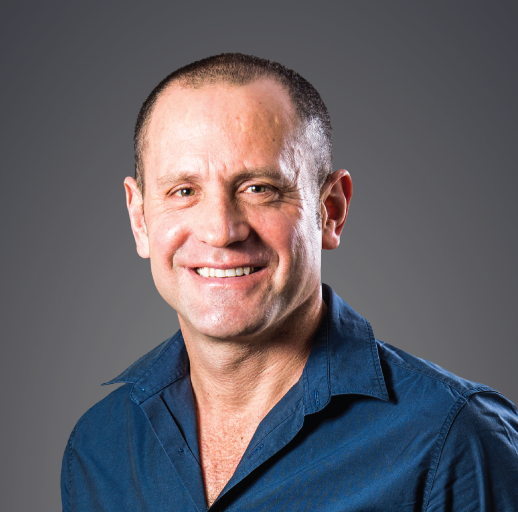click to dowload our latest edition
CLICK HERE TO SUBSCRIBE TO OUR NEWSLETTER


Published
1 year agoon
When Gidon Novick took on the role of a director on the board of the Takatso Consortium at the height of the COVID-19 pandemic, many saw it as a bright light in a dark time. South African Airways (SAA) was in the midst of business rescue, and many believed Novick was going to be the one to bring the skills to revive it. So, his resignation last week caused disappointment and confusion.
Yet, Novick told the SA Jewish Report this week that he wasn’t disembarking from helping SAA. He was unfortunately unable to be effective in his role due to a lack of communication and answers, especially about the raising of capital. Novick decided that stepping down could enable him to make more of an impact than being in a role in which he felt he was going around in circles.
“The overall question is how private skills can be leveraged to get involved properly and fix components of the country that need fixing,” says Novick. “Private individuals putting up their hands to help are the only way things are going to get fixed. With the depth of skill in the Jewish community, there’s a lot to be said for putting our hand up. At the same time, it’s a complex process. The motivation of people you’re dealing with isn’t always aligned with that you want to do. There’s that added challenge.”
Looking back, he says, “the genesis of our involvement [in SAA] began in mid-2020. It was the start of the pandemic, and I wasn’t doing a lot, so I got in touch with the department of public enterprises, asking if I could be of assistance in helping SAA come out of business rescue.”
Novick was put in touch with the business-rescue practitioner, but nothing more happened. Six months passed, and Novick started a new venture, launching his airline, LIFT. He was then asked to bring his skills to the consortium.
“Over the past 18 months, it’s gone a little bit off track,” says Novick, referring to the lack of communication and progress. In addition, some thought he was conflicted because he was running LIFT. “But from the start, that’s the whole reason they were talking to us – that our capability could be used. There was the possibility of a deal to be done [a possible merger with LIFT], and it could still happen,” he says.
“A company’s value is based on the future income it generates. [SAA] was an enterprise that had lost huge amounts of money for well over a decade. So when it came to the starting point, there wasn’t massive value. So, it was about unlocking and bringing in the right skills. We had a plan ready and waiting, but two years have passed, and I’m not sure how much closer it is to fruition.”
When he joined the SAA team, Novick says, he “envisioned building the right team, coming up with a plan, and looking at what the business did well and its strengths, as well as what wasn’t needed and was holding it back”. He wanted to build incrementally “a new culture with a new brand presentation to the travelling public and all South Africans,” he told the SA Jewish Report.
“SAA is an iconic brand with a lot of legacy and baggage. Flying is an aspirational thing. Only 10% to 15% of South Africans can afford it,” he says. “This was an opportunity to create an iconic brand to restore South Africans’ confidence in its ability to succeed. One thing we as South Africans struggle with is that we don’t believe we can succeed. And for good reason, we’ve scored so many own goals. This was a chance to prove that we could succeed with a strong South African brand and emblem alongside it.”
He says that the consortium “had genuine hurdles to overcome”, such as regulatory processes and the Competition Commission. “But where there’s a will, there’s a way. And this is something that doesn’t have the luxury of time. It shouldn’t have an open-ended end date. Our view was that it needed to be done ‘by this date’, and to get it done without delays and excuses.”
He says the consortium will continue its work. “The requirements haven’t changed: the need for the right skills and leadership, experience, capital, and aircrafts. The other thing to bear in mind is that SAA is a pretty small business at the moment. The industry has one dominant airline on the major routes. Then, there are smaller players like LIFT and others. So, there’s logic in the smaller guys working together to compete better with the bigger guys. That’s how industries get stronger.”
So, it’s still logical to try to aim for a possible merger, he says. “LIFT is a strong domestic brand with a broad regional network. There’s an obvious synergy. LIFT also has modern systems and processes, and an innovative culture that could be infused into SAA. From our point of view, all options are on the table. But we need an environment that’s open and transparent, with action-oriented deadlines, and a real commitment to getting things done. With the right brains around the table, anything is solvable.”
Novick says he’s generally impressed with the South African media, but was disappointed with one Sunday paper claiming that his resignation was because he “wanted too much money”. “That’s completely incorrect,” he says.
“We remain open to helping,” he emphasises. “We believe strongly that the skills to build this airline exist in South Africa and we don’t have to look for international experts as long as we have the right solution, skills, and capital.”
